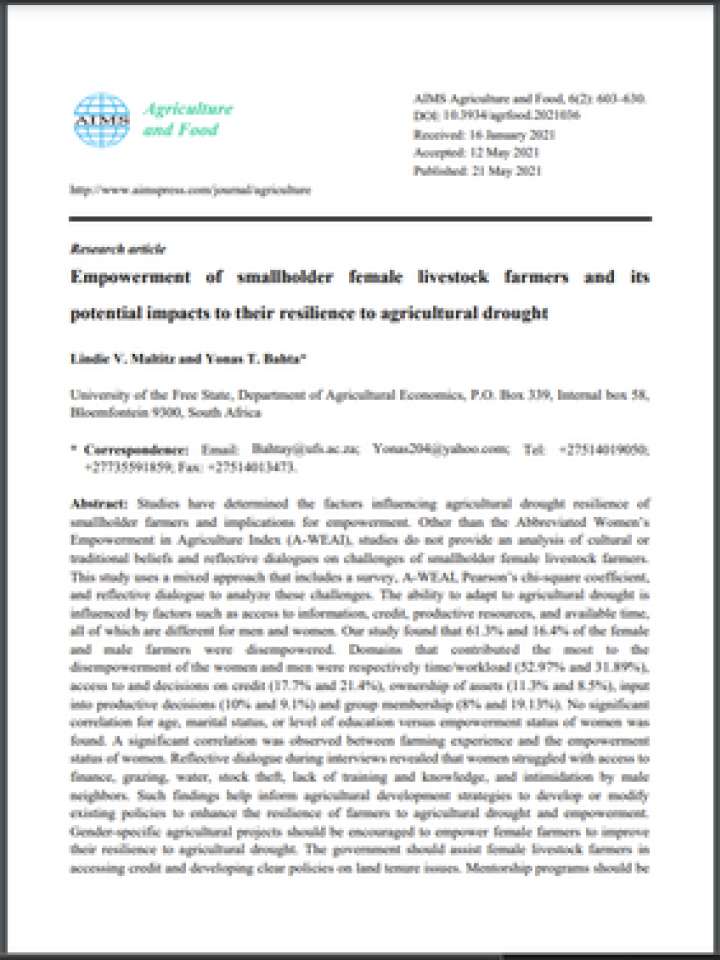Empowerment of smallholder female livestock farmers and its potential impacts to their resilience to agricultural drought
This study uses a mixed approach that includes a survey, Abbreviated Women's Empowerment in Agriculture Index (A-WEAI), Pearson's chi-square coefficient, and reflective dialogue to analyze cultural or traditional beliefs and reflective dialogues on challenges of smallholder female livestock farmers. Smallholder farmers in South Africa in general and in the Northern Cape Province of South Africa in particular have increased levels of vulnerability towards drought. The ability to adapt to agricultural drought is influenced by factors such as access to information, credit, productive resources, and available time, all of which are different for men and women.
Reflective dialogue during interviews revealed that women struggled with access to finance, grazing, water, stock theft, lack of training and knowledge, and intimidation by male neighbors. Such findings help inform agricultural development strategies to develop or modify existing policies to enhance the resilience of farmers to agricultural drought and empowerment. Gender-specific agricultural projects should be encouraged to empower female farmers to improve their resilience to agricultural drought. The government should assist female livestock farmers in accessing credit and developing clear policies on land tenure issues. Mentorship programs should be encouraged to educate and support female smallholder farmers to enhance their agricultural drought resilience and empowerment.
Explore further
